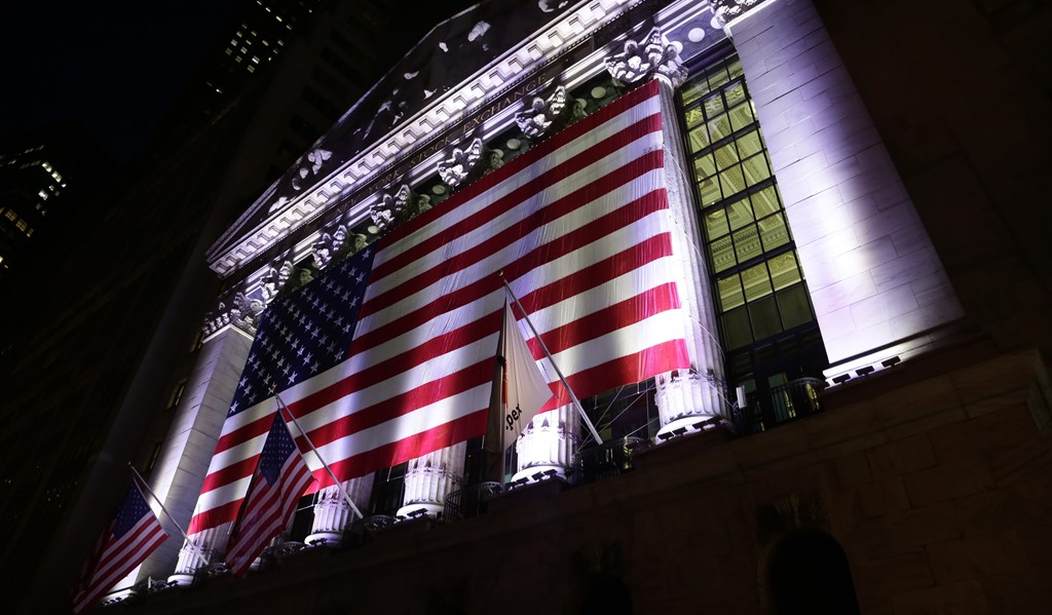Super highways, coast to coast, just easy to get anywhere
On the transcontinental overload; just slide behind the wheel
How does it feel when there's no destination that's too far
And somewhere on the way you might find out who you are?
-Living in America
President Trump has declared ‘Made in America Week.’ Yesterday, products from all 50 states were on display. Tomorrow, President Trump will issue an official proclamation on the importance of making goods in America while commissioning the USS Gerald R. Ford in Virginia.
I have always said owning great American companies that hire Americans and sell products around the world is the best way to successful long-term investing. The notion of filtering investments solely through the lens of where factories are located can be complicated and could mean a near-term underperformance. Companies moored in the United States are typically safer investments with more stable dividends.
According to FactSet Data, 270 S&P 500 companies will receive 70% + of their annual sales in the United States but pay higher taxes, consequently.
| Sector | % Revenue Domestic | Effective Tax Rate |
| IT | 40% | 17% |
| Materials | 51% | 25% |
| Energy | 56% | NA |
| Industrials | 60% | 25% |
| Staples | 70% | 31% |
| Discretionary | 72% | 28% |
| Financials | 77% | 26% |
| Health Care | 80% | 20% |
| Utilities | 94% | 29% |
| Telecom | 100% | 28% |
Without a doubt, we must celebrate ‘Made in America Week’, but we should also find a way to reward these businesses with lower taxes. I don’t think they need 15% to see material improvement, which leads to greater hiring and investment. On the other hand, small businesses should get a sub- 20% rate that can’t be hijacked by wealthy folks and big businesses.
Recommended
President Trump talked about leveling the playing field to help American businesses - which is music to my ears - but we can’t forget other issues beyond poor trade deals. According to a new report from Ball State University, out of the 5,000,000 job losses since 2000, only 13% came from trade and 87% are from automation. I think the actual number is higher but if we took this at face value, it would be a total 650,000 job losses.
Higher Wages Around the Corner?
Yesterday, the National Association for Business Economics (NABE) added to the growing list of anecdotal evidence that an explosive wage growth could be around the corner; 47% of respondents say that wages will increase in the next three months. With this in mind, 50% see higher sales against only 17% that are bracing for fewer sales.
One-third of respondents reported trouble with finding workers. The adjustments should address America’s skilled trade dilemma:
- 22% Hiking Pay
- 19% In-House Trading
- 10% Invest in Automation

Of course, at some point, alarm bells should ring loud enough for America to shift its educational system to produce worker-ready graduates with modern skills. It might mean ripping control from the vice grip of teachers’ unions. In fact, I’m surprised individual states haven’t seen this as a better weapon to attract business than lower taxes and other economic incentives.
Market Under the Hood
The biggest winners yesterday were retailers and restaurants. Macy’s (M) and Kohl’s (KSS) were joined by Buffalo Wild Wings (BWLD) to lead consumer discretionary names. I suspect a part of this rotation into these battered names are folks looking for an oversold bounce; although there could also be a sense that as the dust settles, brick-and-mortar names left standing will be competitive.
We have the other end of consumer discretionary names: Netflix (NFLX), which posted blowout results that, reflected a strong subscriber growth during an unusually slow period of the year. There is a sizable short position on NFLX; it will be interesting to see if there’s a massive covering or if the shorts will go out on their shields as they usually have in the past.
Note: International business is more than 50% of the total now, and will become profitable this year. This is another example of American know-how dominating the world.

























Join the conversation as a VIP Member